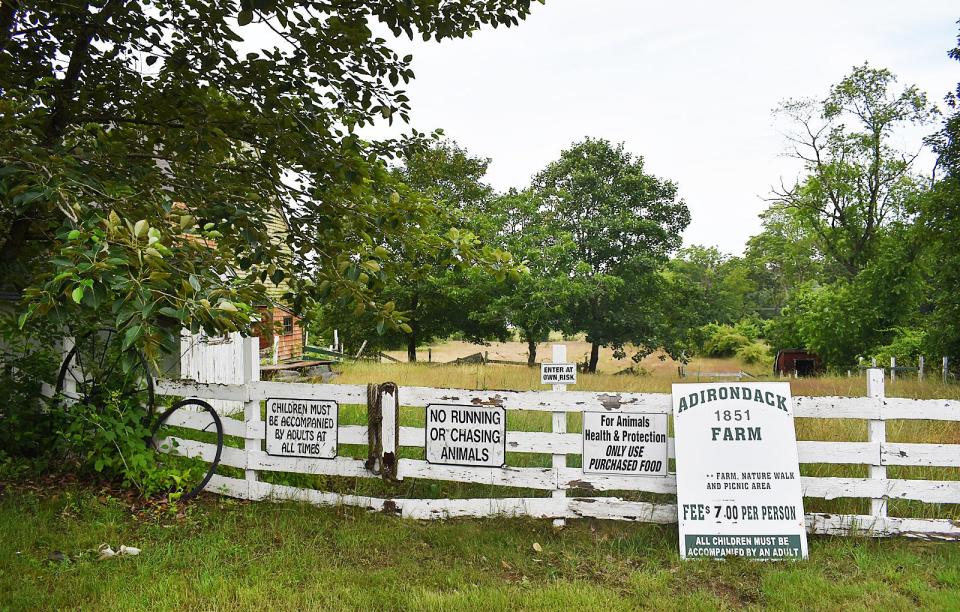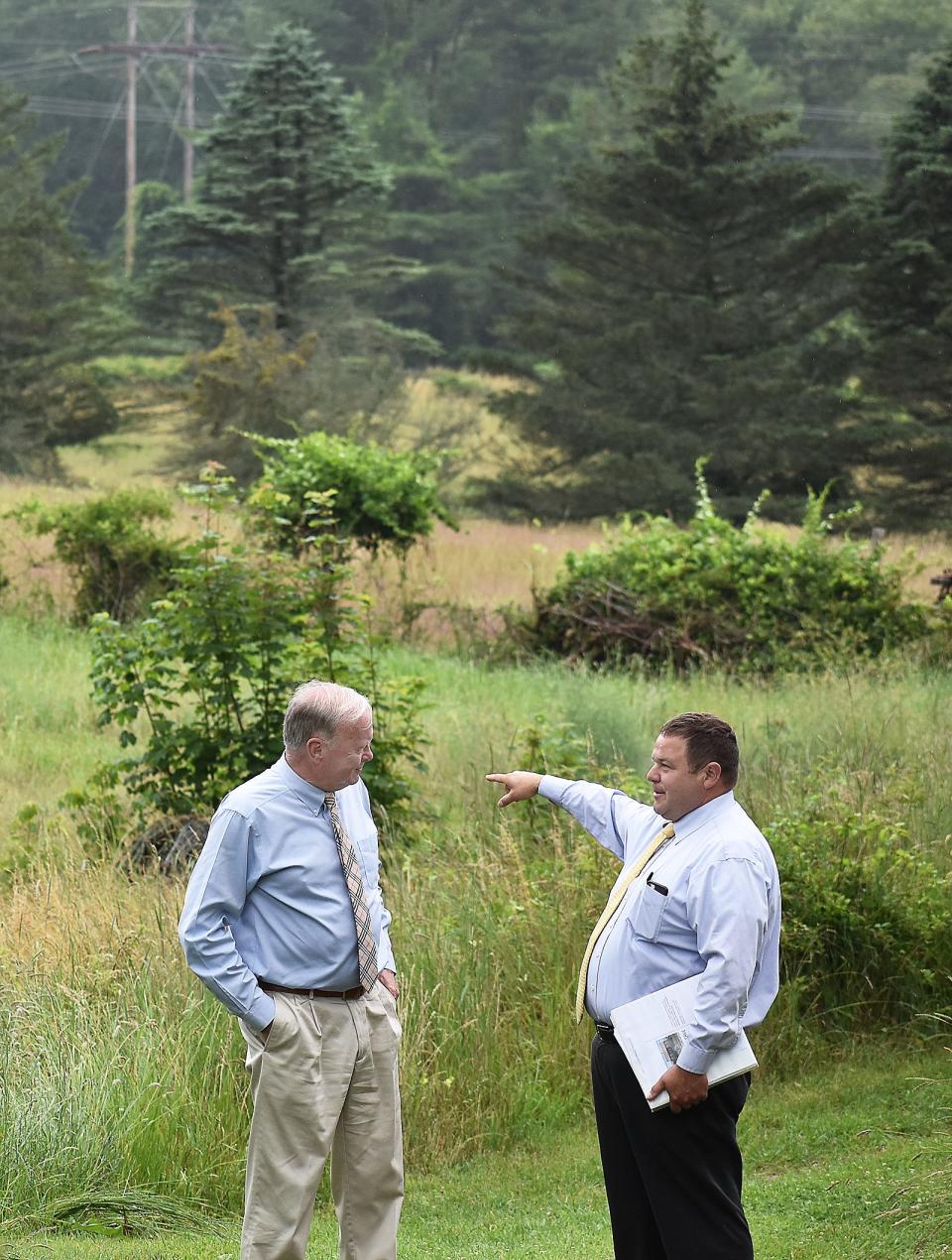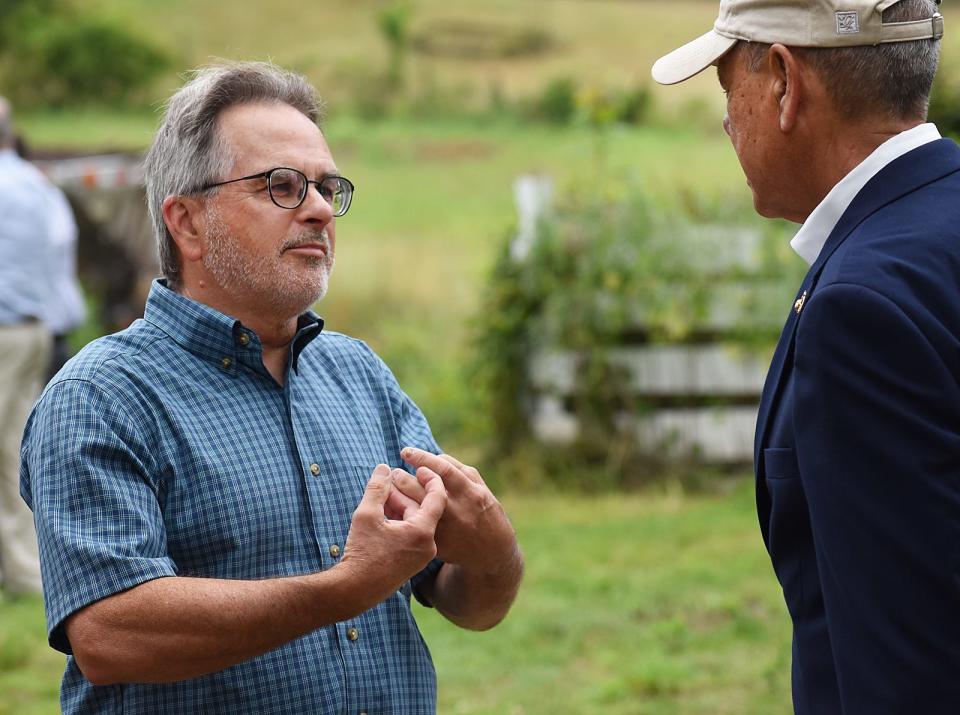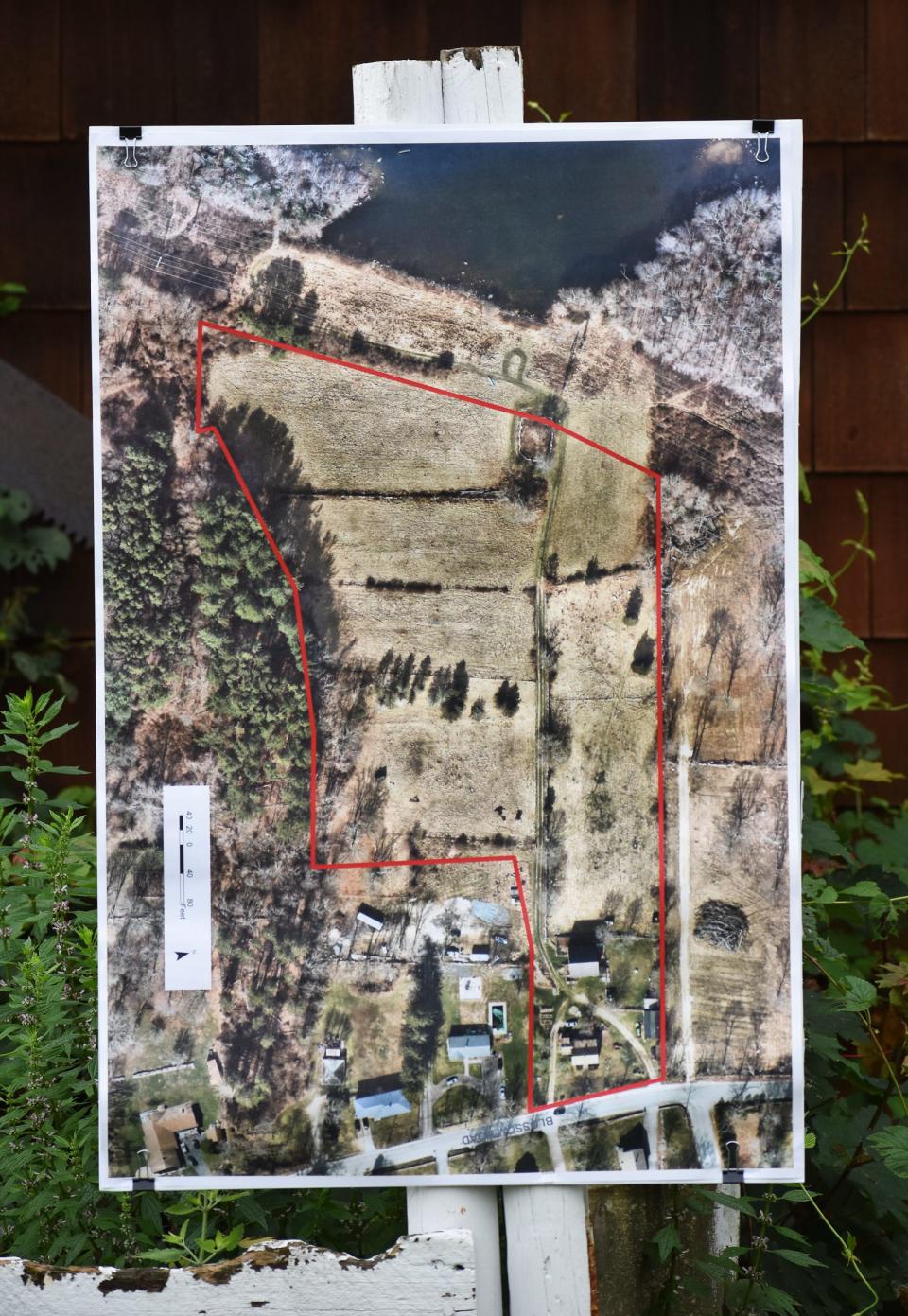Fall River buys the farm: Why the city is preserving historic acreage for a nature center
FALL RIVER — Owning the pastoral Adirondack Farm, with 10 acres of land tended to for over 160 years on the banks of the North Watuppa Pond, had long been on the wish-list of several city and state officials.
On Tuesday, a group gathered on the old farm at 1046 Blossom Road to celebrate the city's purchase of the farm, which will be the future home of Fall River's Bioreserve Environmental Education and Discovery Center, a gateway to the Southeastern Massachusetts Bioreserve.
“The Fall River Water Department, the city of Fall River and the state delegation and our partners within the Bioreserve always saw this property as a key piece of property,” said Director of Community Utilities Paul Ferland. “It’s right in the entranceway to our bioreserve, over 16,000 acres of protected forest land that has miles and miles of hiking trails and paths for recreational activities throughout it.”

Take a hike: 5 easy places to start exploring Fall River's Bioreserve, and how to get guided tours
The water department’s reservation superintendent and project manager Mike Labossiere, who has been one of the city's main drivers to acquire the farm, will head up the project.
Funding sources made the $800,000 deal happen
The city closed on the sale of the farm on June 16, buying it from the late Eugene Pineault and his wife, Lucette. The Pineaults were themselves on a mission to open the farm to residents to appreciate the land, animals and the practices of farming and preservation.
Ferland said the purchase of the farmhouse, barn, and other outbuildings on 10 acres cost $820,000, with his department having $1 million to expend on renovations.
Mayor Paul Coogan, with the approval of the City Council, approved the purchase last year, agreeing to use American Rescue Plan Act money, with $365,000 going toward the purchase price and the additional million to create the educational center.

How is Fall River spending ARPA funds? 911 upgrades, police body cams and more
The $1.365 million in ARPA funds will be used to improve access to nature and promote healthy living for children, a use allowed under federal guidelines, meant to bridge educational and health gaps in underserved communities.
The city also used money it received from a federal land grant, a state earmark, and a Community Preservation Act grant this year.
Coogan said “I have so many visions for this piece of property,” and joked with Ferland and Labossiere that they could create attractions like a raptor center or a petting zoo and classroom space outdoors.
“To let them come from the indoors and take a walk, and see what a great spot we have here on the Reservation and all the way down to the city’s drinking water,” said Coogan. “The potential of this piece of land to be an economic driver for the city of Fall River is tremendous.”

Preserving the farm was former owners' goal
Labossiere said the negotiation to buy Adirondack Farm “has been a conversation well over 20 years with the family.”
Eugene Pineault grew up close to the farm, said Labossiere, and served in the Marines, where thoughts of the land sustained him during his tour of duty. Pineault died in January 2021 at age 79.
Pineault and his wife owned the farm for about 40 years and raised their family there, where they instilled a love of the land, and “restoring the farm became a family affair,” said Labossiere.

“They appreciated their rural life and values, and they also acted on their impulse to share those values in this beautiful setting by running a petting farm for nearly 40 years,” said Labossiere. “It was in that spirit that the family gave us the opportunity to acquire the property.”
Labossiere said he hopes the creation of the environmental and education center will honor the family’s legacy of preservation.
Ferland said the next step for the project “is to get an architect on board.” The city had worked with students from Roger Williams University who produced some preliminary renderings of plans for the transformation of Adirondack Farms.
He said the city will be working in partnership with both local and government agencies to develop the project.
This article originally appeared on The Herald News: Why Fall River used ARPA funding to buy farm and create nature center

